View the Beautiful Nanohana Flowers at the Fujiwara-kyo Palace Ruins
2023/03/10
The beautiful scenery of spring 2023 is starting to show in various wonderful ways around Nara Prefecture, with perhaps the biggest attraction so far being the Japanese plum (“ume“) trees, which should reach their peak later this month in the famous mountain ume groves of Ano and Tsukigase. In fact, the whole of Japan’s Kansai area is currently in a warm spell as of this writing in early March, with temperatures hovering around 20 degrees Celsius (70 F), which likely means that the flowering of all sorts of plants will accelerate pretty quickly this year.
If you are looking for a beautiful area to explore in the spring that is a little off the beaten track, we recommend visiting Kashihara City’s Fujiwara-kyo Capital Palace Ruins site. It is considered an especially scenic historic landscape, cradled between the 3 Mountains of Yamato and at the center of what was once Japan’s first planned imperial capital city (“Fujiwara-kyo”), which was the seat of power of the Imperial Family around the start of the 8th century. From roughly the end March, a combination of 2 beautiful flowers bloom in this area, the sakura and nanohana, creating a beautiful scene of bright yellows and subdued pinks.
Nanohana are spring flowers of the Brassicaceae family of plants, also known as canola. In Japan, these plants are not only appreciated for their beauty and also are harvested for used as food in a variety of meals.
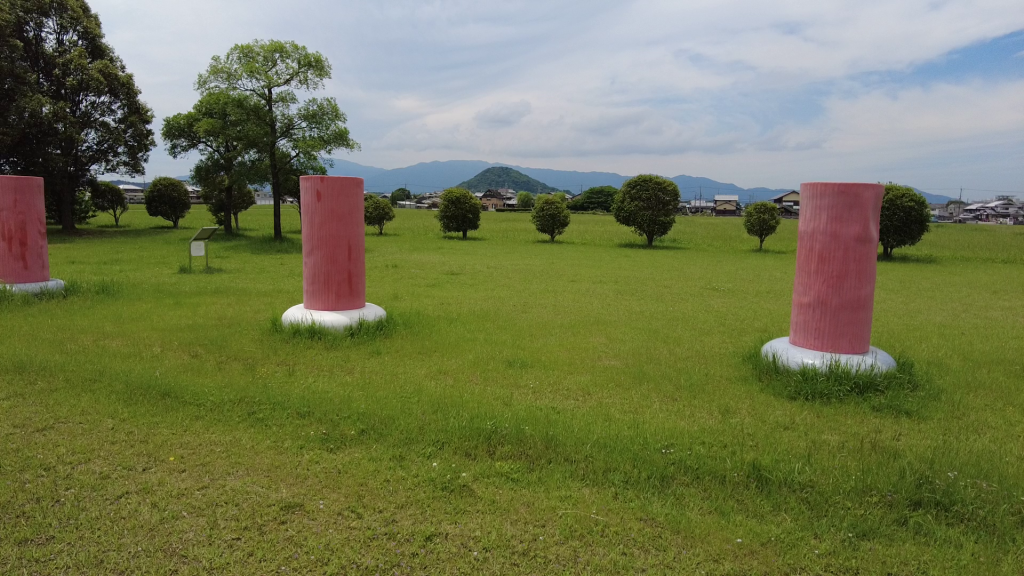
Reconstructed pillars from a building at the ancient Imperial Palace at the Fujiwara-kyo archeological site.
At the Fujiwara-kyo Palace Ruins archeological site, there is a specially designated area where nanohana is cultivated in mass, creating a wonderful site to see in the spring. Visiting this area allows you to look over a landscape that is deeply connected to the origins of the country of Japan; the legendary first Emperor of Japan was said to have founded the country here. Furthermore, it was in this part of the Nara Basin that many key aspects of Japanese culture were cultivated, including early forms of Shintoism, the introduction of Buddhism, and new forms of organizing society. It can be said that visiting this region allows you to truly feel the atmosphere from a different age in Japanese history.
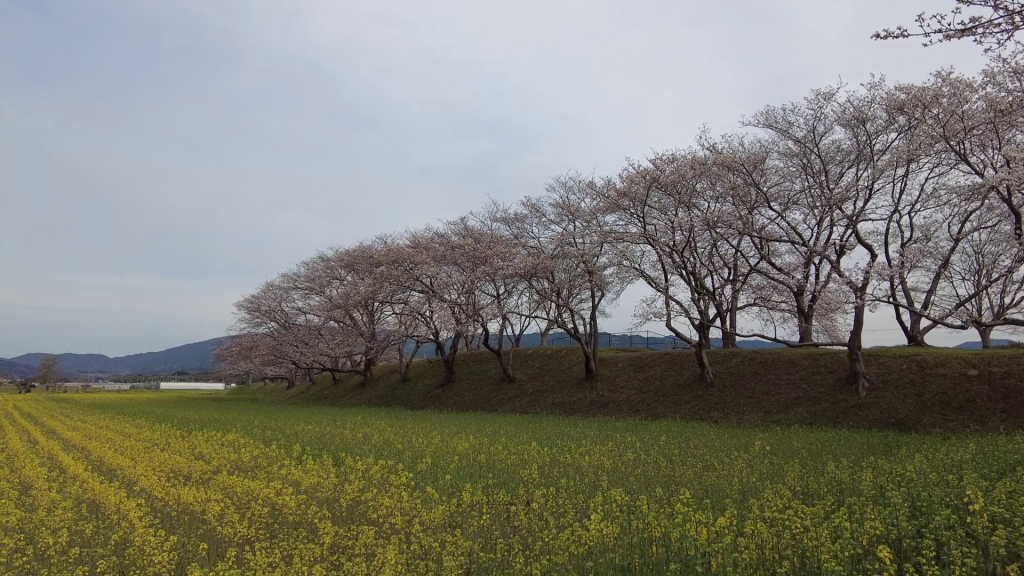
Cherry blossoms and nanohana flowers. The eastern mountains of the Nara Basin are in the background.
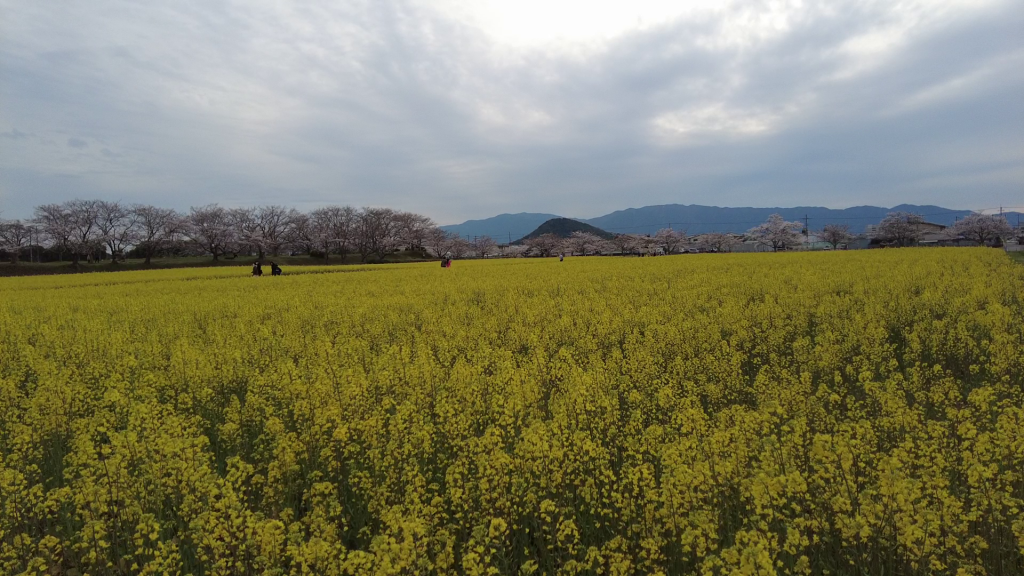
Looking west over the nanohana, Mt. Unebi, the tallest of the historical Three Mountains of Yamato, is visible in the background. “Yamato” is the old word for Nara Prefecture.
Accessing the field of nanohana is luckily quite easy, as it is only about a 20 minute walk from Yamato-Yagi Station, or it is possible (and recommended!) to rent a bicycle for a day from nearby Kashihara Navi Plaza. The area surrounding Fujiwara-kyo is also packed with interesting sightseeing locations as as well, including the preserved Edo period town of Imai-cho, the vast Kashihara-jingu Shrine, and Mt. Unebi. A bit farther out, but within a 30-45 minute bike ride are locations such as the ancient village of Asuka, Abemonju-in Temple and the Yamanobe-no-michi, an ancient path through a serene countryside landscape.
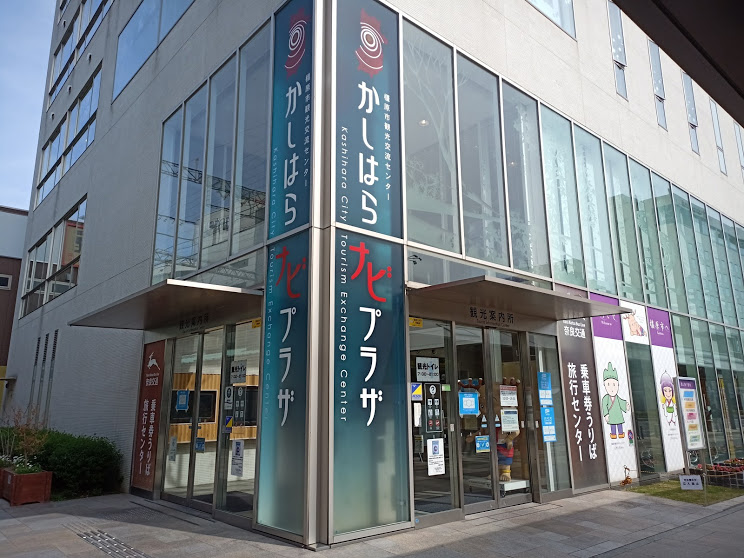
Kashihara Navi Plaza, next to Yamato-Yagi Station. There is a variety of informational materials available for free here, including maps of the area in English.
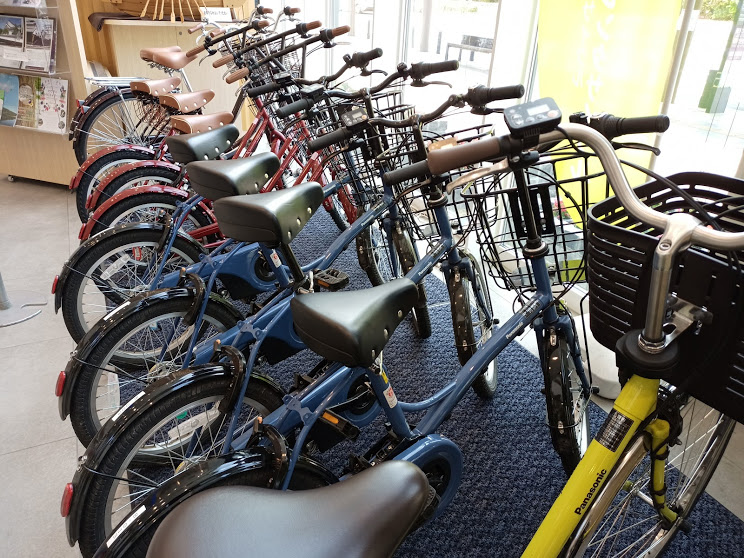
Bicycles available for rent inside Kashihara Navi Plaza.
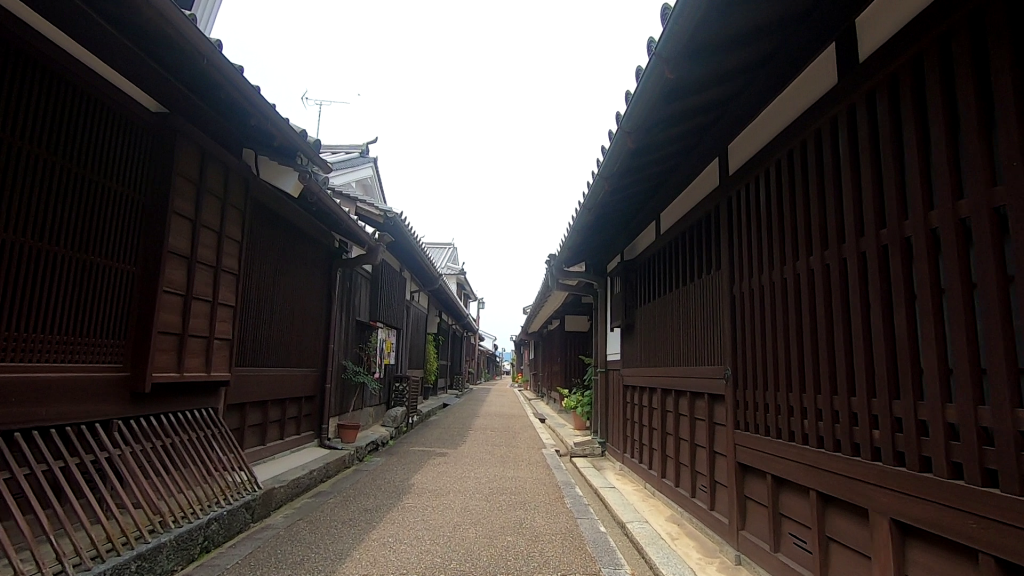
Preserved Edo period town of Imai-cho, located not far from Fujiwara-kyo.
Location:
We recommended accessing Fujiwara-kyo’s nanohana field from Yamato-Yagi Station, as from there visitors have access to a variety of different useful resources, including bicycle rental and informational materials at Kashihara Navi Plaza, as well as many different local shops and restaurants to choose from.
For more information about Fujiwara-kyo or perhaps to arrange a tour, feel free to contact us here directly at Kansai Treasure Travel.

01
FIND YOUR FAVORITE
TRIP ON OUR WEBSITE.
SEND US AN INQUIRY.

02
PERSONALIZE THE TRIP
TO YOUR INTERESTS
WITH OUR CONSULTANT.

03
20% DEPOSIT TO CONFIRM.
BALANCE PRIOR TO ARRIVAL.
PAYMENT BY CC OR TT.

04
WE WILL
MEET YOU
AT THE AIRPORT.

05
DISCOVER THE
TREASURES!